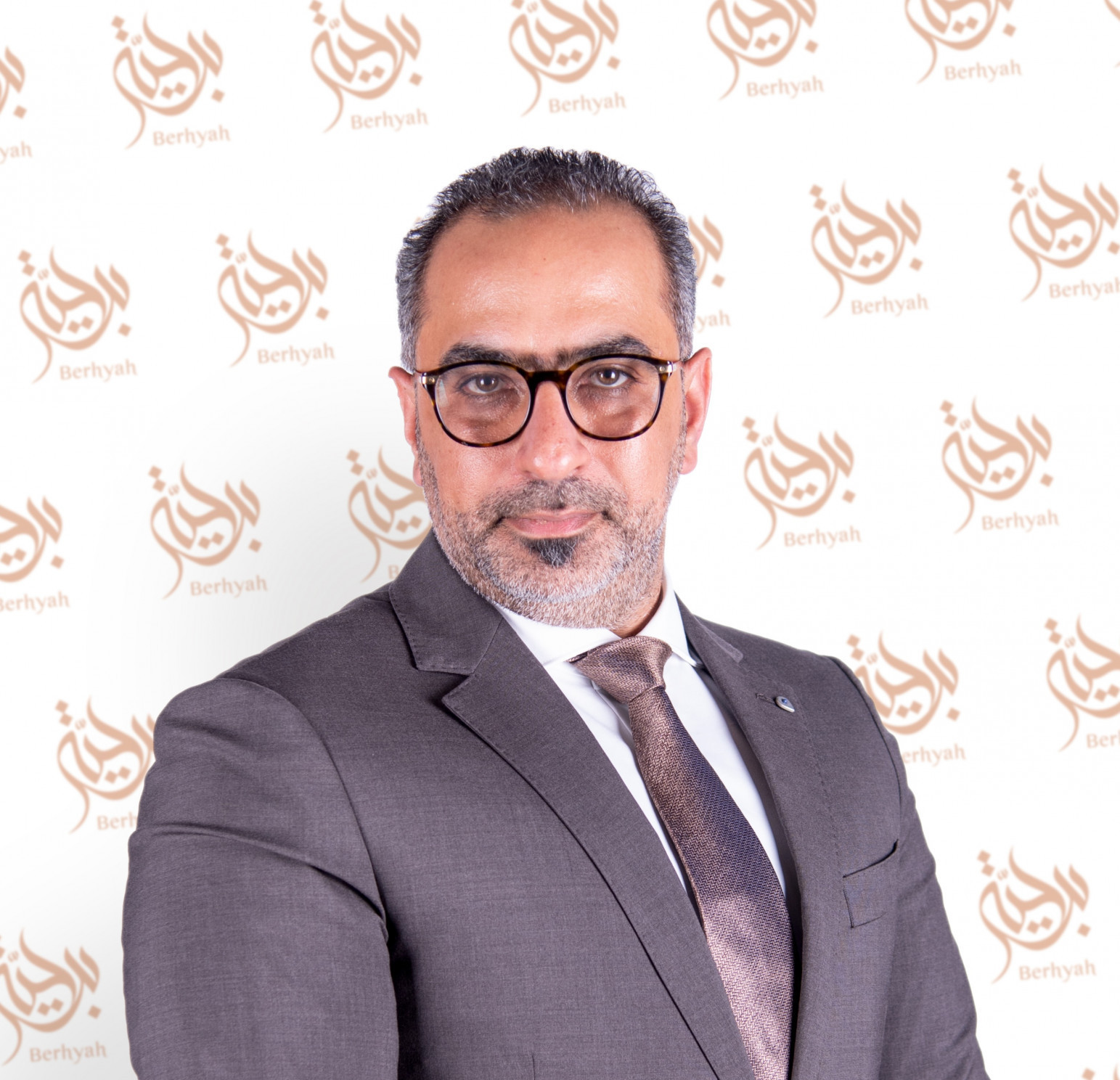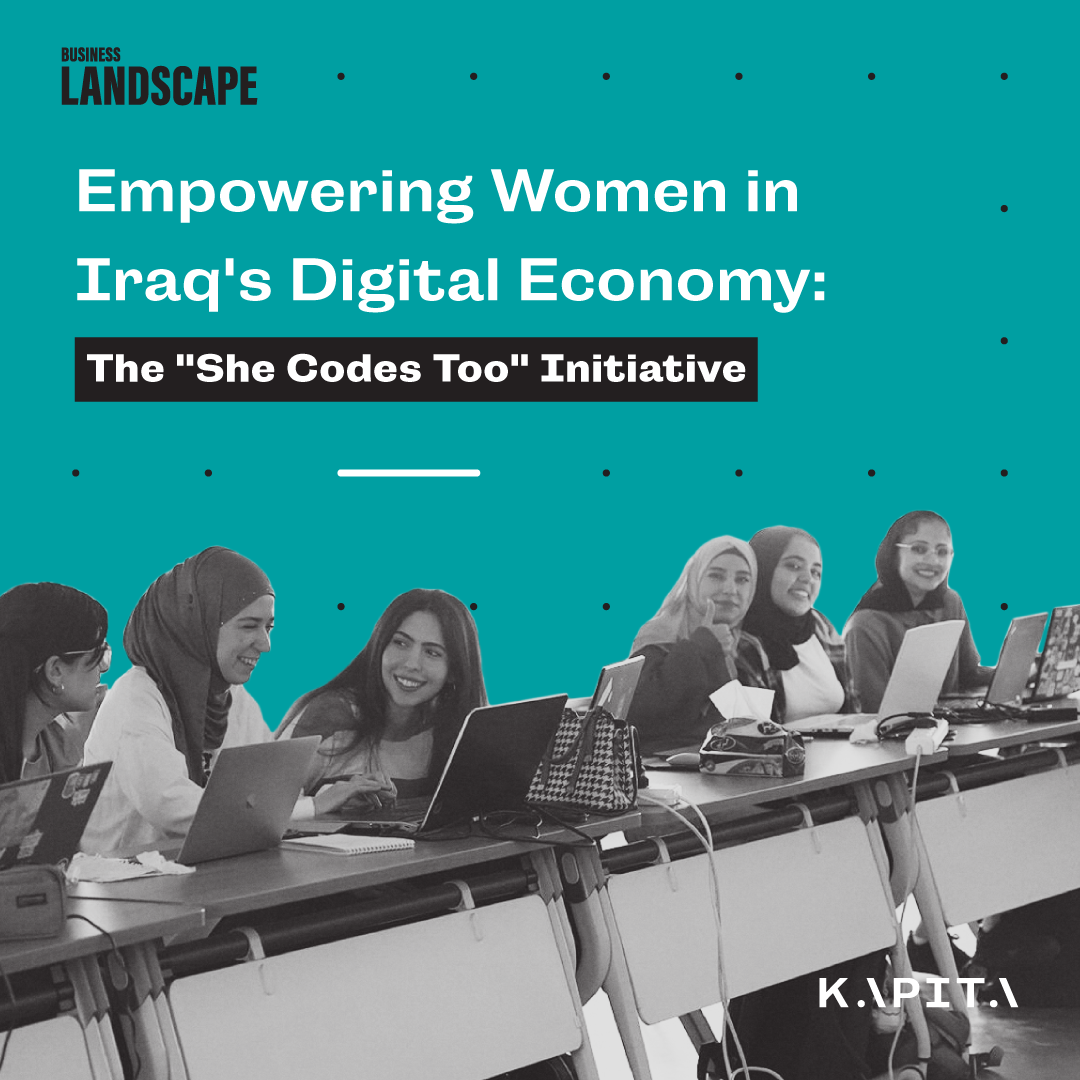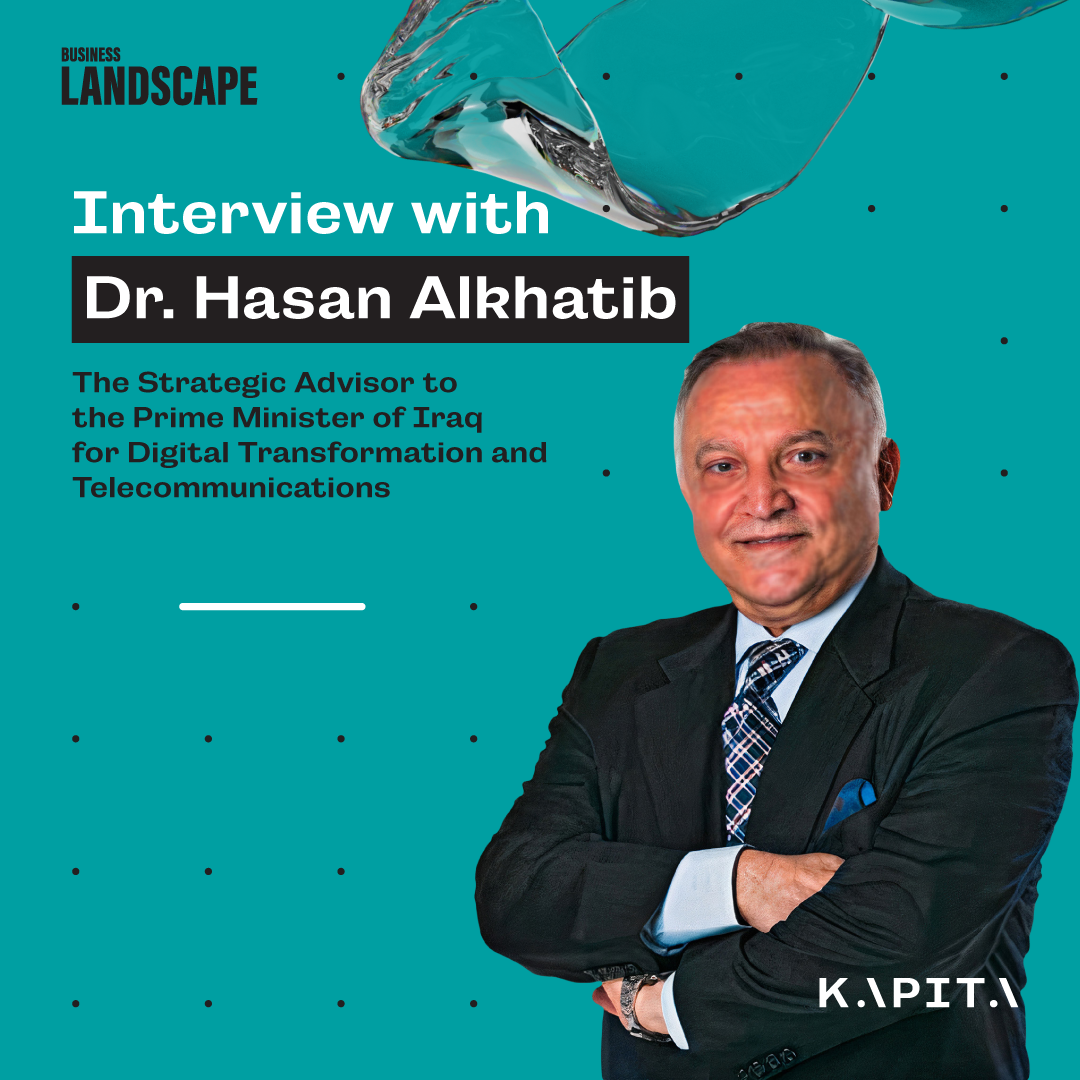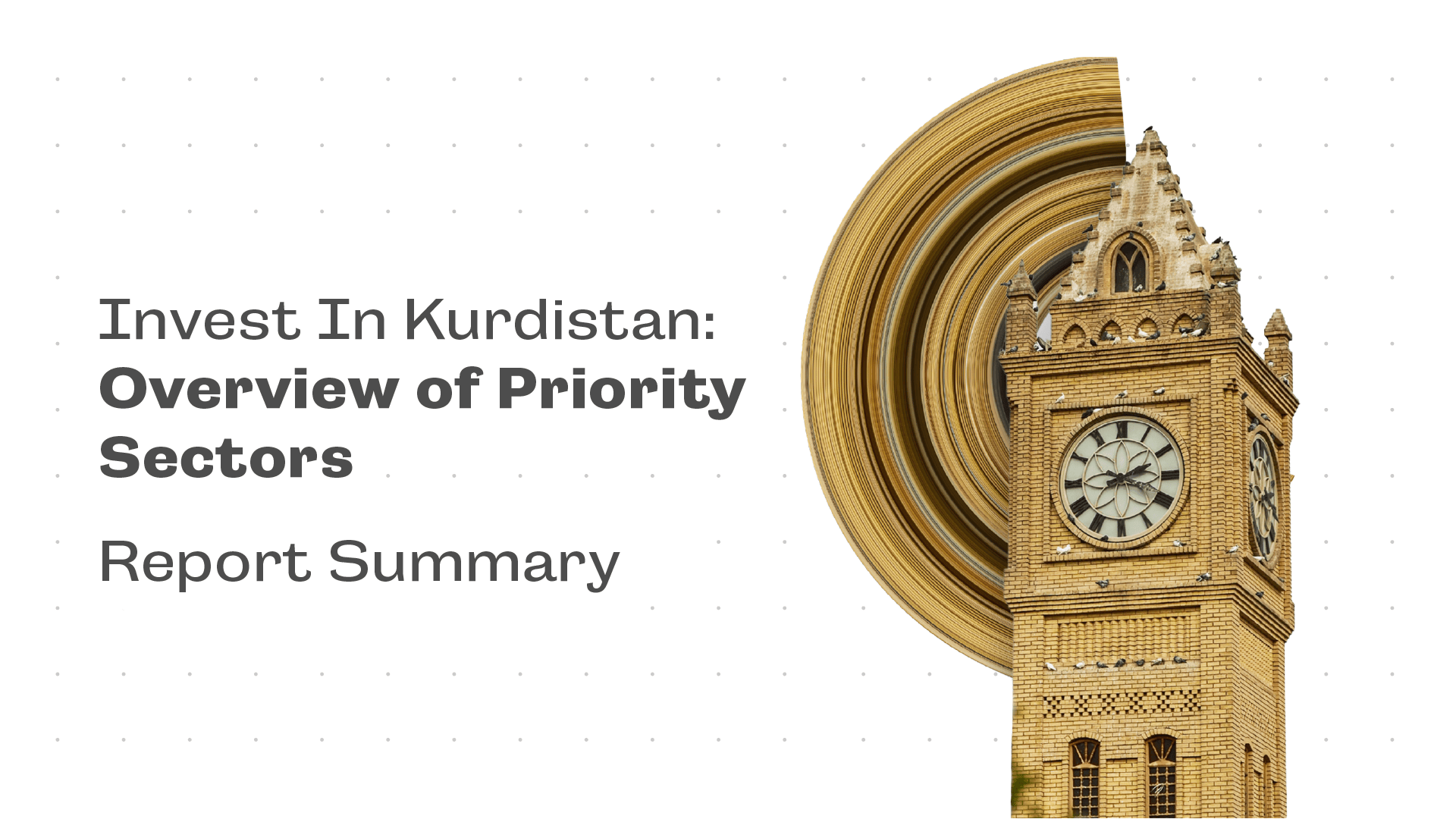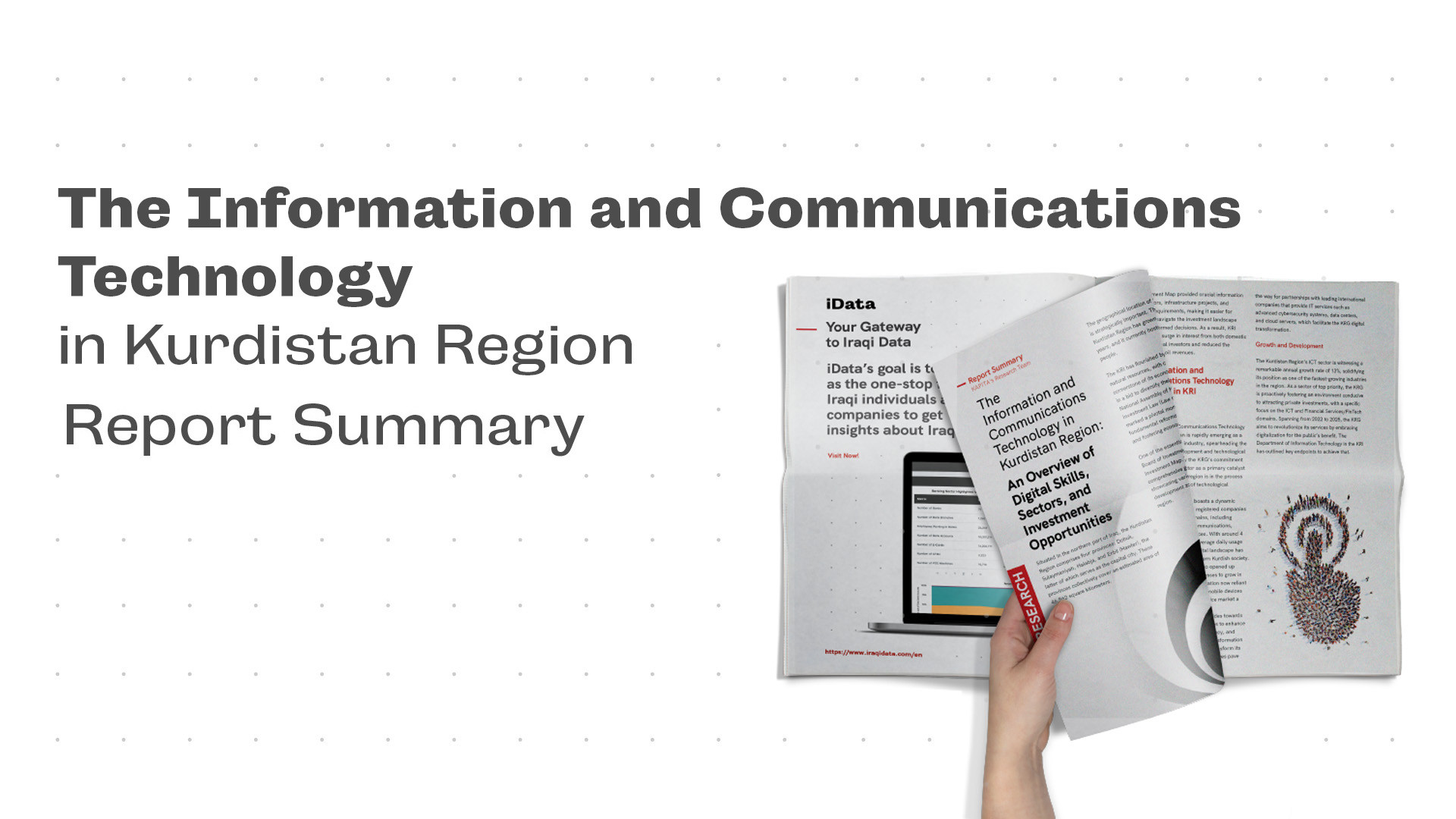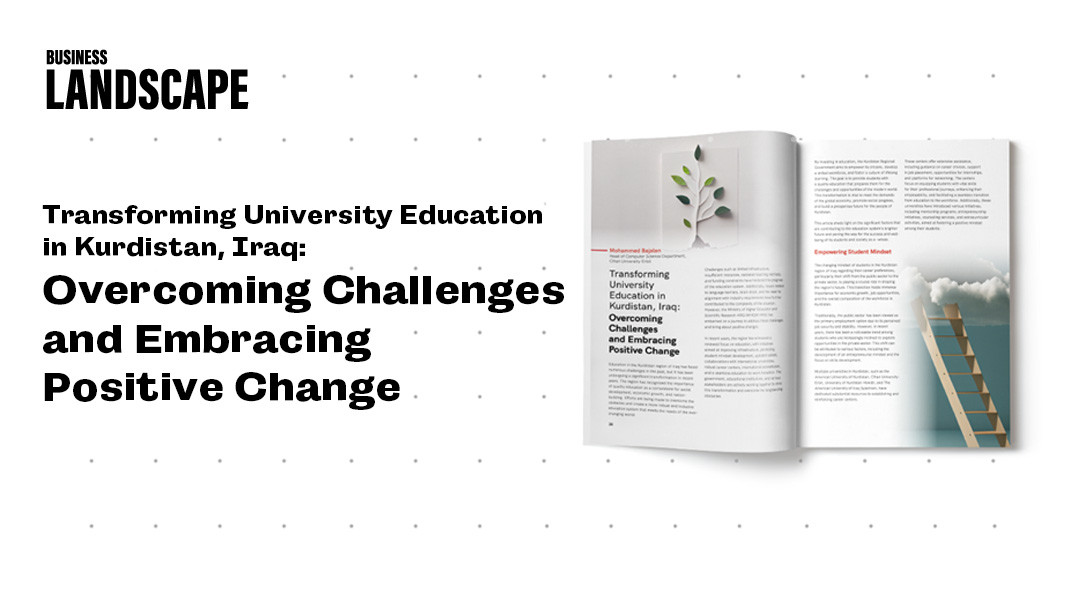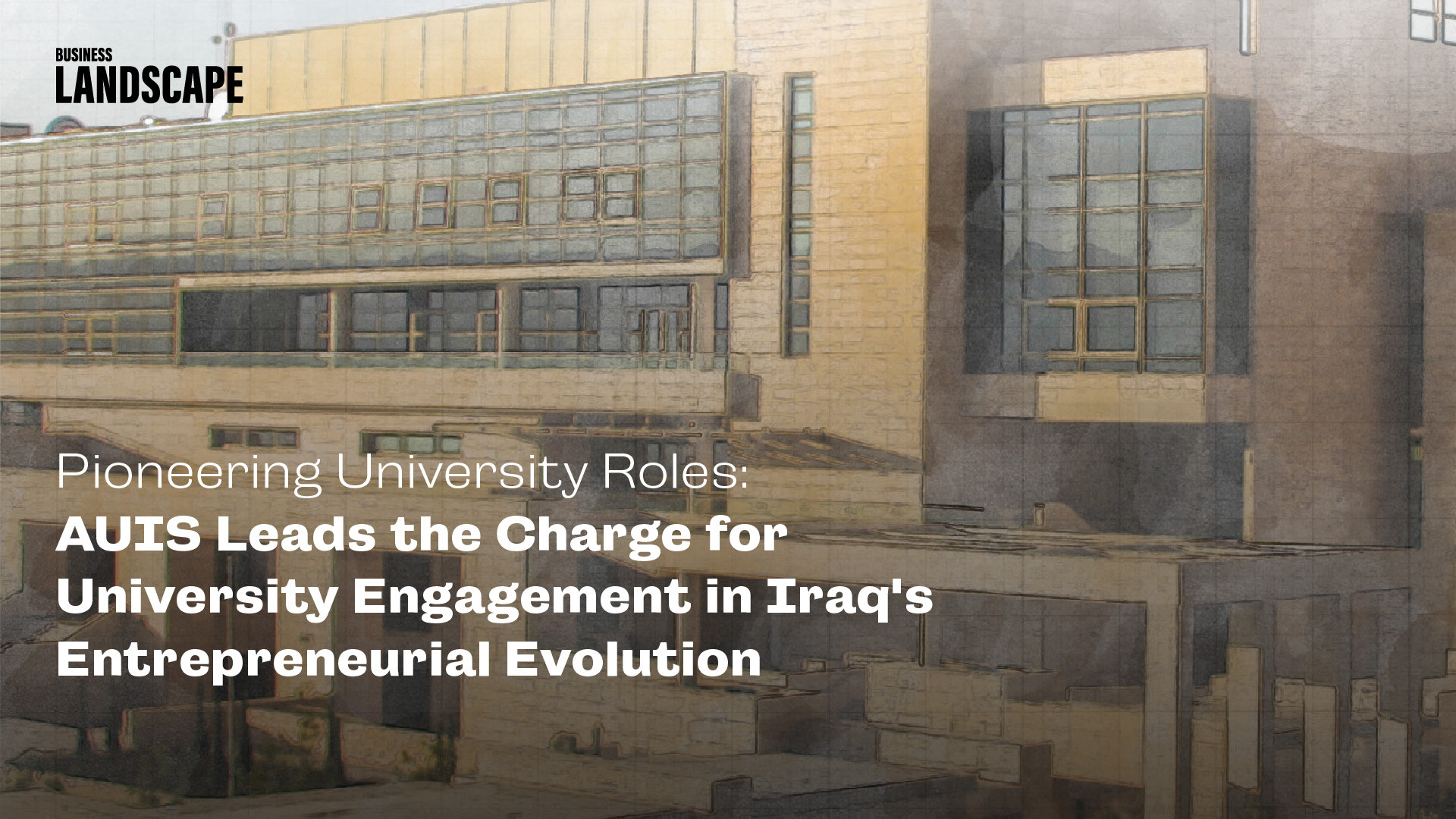Business LANDSCAPE Interview
Maythem Saad
Founder and CEO, Berhyah
Maythem Saad is the Founder and CEO of Berhyah, an Iraqi brand that offers a selection of gourmet Iraqi dates, with headquarters in Basra. Mr. Saad has built his profile working in the telecommunications and information technology domains. He has since started navigating the food manufacturing industry in Iraq and established his startup Berhyah. Mr. Maythem told Business LANDSCAPE about the story behind Berhyah, their developments, the challenges of an import-saturated market, the impact of climate change on food manufacturing businesses, and what the future beholds for the company as a brand that could carry the story of Iraq to the world.
We would like to start with an introduction about you and the story behind Berhyah.
My name is Maythem Saad. I was born in Basra, Iraq. I left Iraq for Libya in 1995, where I pursued my studies and graduated with a computer engineering degree. I worked for a long time with Cisco and Microsoft in networking. Then I worked in IT infrastructure management with Jordanian companies like E-Tech Systems and Optimiza and other international companies through their branches in Libya. In 2009, I returned to Iraq, where I founded my first IT company, which was an internet-providing company for the oil and gas sector in Basra. We were commercial agents for Xerox, Dell, Lenovo, and HP. We worked on several projects, including executive projects like CCTV and security systems. I got my master’s degree in marketing in London in 2017 and began developing my skills in marketing. In 2018, the oil and gas sector started to decline; hence, our business slowed down.
Therefore, I began venturing into a different path and started Berhyah in May 2018. The main idea behind Berhyah was to cater to the market's need for premium gifts that convey the culture of Iraq. I noticed that other Gulf countries, whose date production is considered to be low in comparison to Iraq, are very attentive to the packaging and marketing of their date products. The main idea was to procure pressed dates, especially Barhi dates, mix them with nuts under a specifically studied formula, and pack them in specially designed packaging that reflects Iraq’s culture and heritage and is inspired by Assyrian and Babylonian inscriptions. The name ‘Berhyah’ was taken from the Barhi palm trees that produce one of the best types of dates in terms of flavor and nutritional value and is considered to be a pure Iraqi variety.
The shift from the IT sector to the food industry must have been difficult. Could you tell us more about this leap you have taken and the challenges of the food manufacturing industry?
The switch was not easy, especially considering that the two sectors are extremely different. I kept the IT company operating and offering services, although on a lower scale. I decided to follow my passion and thoroughly researched the food manufacturing sector. My main focus was on the new business, market needs, and the customer.
The food manufacturing industry in Iraq was declining due to the country's political and economic state and the unavailability of sources for raw materials because of the embargo that took place in the period before 2003. After 2003, neighboring exporting countries started competing within the market until it was crammed with a variety of products. Hence, nobody felt the need to manufacture anything since the market was already saturated with diverse products at competitive prices.
In addition, local businesses face multiple challenges, starting with the complicated process of obtaining a license from the industrial development department to operate and the arduous process of trademark registration. Other challenges include the lack of raw materials and difficulty in operating the machines due to the inaccessibility of stable electricity, power sources, and clean water. On the other hand, finding human resources with expertise in this sector is challenging since the sector has been dormant for decades. Consequently, the manufacturing process is not cost-efficient, especially considering that imported products offer better prices. Therefore, the industrial sector declined, and many factories, whether publicly or privately owned, stopped operating, and production was seized.
However, recently, the industrial sector is becoming more active. We have been witnessing loyalty from the Iraqi consumer towards Iraqi products, especially those of good quality. I hope that Iraq becomes dependent on local production to supply its needs and returns to being an exporting country.
How can we overcome those challenges so local businesses grow and startups can enter this sector? And which stakeholders can play a role in overcoming those challenges?
This responsibility lies on the shoulders of multiple parties, including startup founders and entrepreneurs. Entrepreneurs should be prepared to face the challenges and difficulties of the ecosystem and have the stamina to overcome them. They should also believe in the idea or product they are working on. The government also plays a significant role as a business facilitator, whether in tax or customs exemption, recruitment of workers in certain specialties, and trademark registration. Moreover, updating the laws and regulations is essential to revive this industry. Many simple procedures, such as registering new products with international barcodes and trademarks, can take up to months in Iraq compared to only a few days in other countries.
Furthermore, the banking sector has a crucial role, as one cannot start any business without the approval of the Central Bank. However, the CBI can facilitate the process by setting a clear distinction between traders and industrialists. Traders drive the local currency outside the country when importing products from other countries. Whereas industrialists can preserve the local currency within the country which is why they should receive more support from banks. This support could be in the form of carefully studied loan plans that are only offered to businesses that are legally registered. All those stakeholders need to align their efforts in order for the industry to get on the right track. Otherwise, the development of this sector would be challenging, and Iraq’s economy will remain imports-dependent.
How is Berhyah standing out from the competition of imported products in the market?
Berhyah has distinguished itself from other competitors in the market with its local Iraqi identity. It has also become the premium Iraqi gift. We established our brand name within the market with our story, quality of products, and sophisticated packaging design inspired the Iraqi culture that established a strong connection with the consumer.
As for other products in the market, the competition is high. There is a lack of oversight and regulations on the borders and imported products. There must be clear laws that protect Iraqi products by minimizing the entry of imported goods. The existence of such laws would motivate local companies to increase their production to meet the market's needs. If we keep on relying on imported products, there will not be any development in the local production of the country.
How is climate change affecting your work in the food production industry? Is it affecting other industries as well?
The date palms production industry has been revitalized over the previous years because palm trees can withstand and survive high-temperature climates. As for Berhyah, the size of our production has not reached a vast scale to the point that palm groves production is insufficient to meet our demand. Our production is limited to 3 or 4 tons per month; this amount could increase to 6 or 7 tons during the month of Ramadan. Therefore, those changes have not yet impacted our production gravely. As for other businesses in the food manufacturing sector, climate change has affected many farms, especially those of wheat, barley, and basic crops. This impact is aggravated by unsustainable farming and irrigation methods and the lack of action taken to combat the climate change crisis.
We would like to know more about your journey into the entrepreneurial world and your participation in ScaleUp Academy. How is that affecting Berhyah’s growth?
Any entrepreneurial venture needs constant development and reevaluation to scale its operation. In Berhyah, we believe in the continuous development and training of our human capital. This stems from our belief that to build a successful business, we need to develop the skills of the people. ScaleUp Academy provided us with the right foundation for growth and the tools to expand and develop our business model. The program also helped us develop our vision and standards to meet international criteria. Today Berhyah aims towards global recognition. Thus, we have two business verticals: the factory and the cafe. We established a cafe franchise in multiple Iraqi provinces and looking to expand to other countries. The factory vertical also has diverse business lines that serve customers, businesses, and the government.
How did the Gulf Cup affect Berhyah as an Iraqi brand? Especially since Berhyah is based in Basra, where the Cup took place.
The Gulf Cup provided a giant opportunity, not just for Berhyah but for Basra and Iraq as a whole. It changed the world’s perception of our country and the misconception that the conditions are unsafe and we are still suffering from the aftermath of war. The Gulf Cup proved that Iraq could be an attraction for tourism and that the local businesses are operating on a level that allows them to compete regionally.
Our customers from the Gulf countries loved our products, especially that Iraqi dates are renowned for their excellent quality. They wanted to leave Iraq with gifts that portrayed a story from Iraq. Our packaging includes exclusive paintings from various famous Iraqi artists, such as Mohammed Ghani Hikmat and Jawad Saleem, which further distinguishes our products. The Gulf Cup provided a quantum leap for Berhyah. The Cup has offered a first-hand experience for our foreign customers to try our products at our own cafes, which started multiple conversations about starting a franchise in other Gulf countries, like Qatar, Saudi Arabia, and Kuwait. We hope that Iraq will have many other opportunities to host and organize such events that will encourage local businesses and promote tourism.
What are the future plans for Berhyah?
Any business will develop the need for expansion and development when reaching a certain level which will call for investment. We hope that after we graduate from ScaleUp Academy, we will be ready to raise investments. In the upcoming years, we plan to open branches in four main areas known for their luxury brands: Tokyo, New York, Zurich, and Dubai. We hope to export our products on a much wider scope. We are also working with five Iraqi Embassies which use Berhyah as diplomatic gifts, yet, we aspire to work with all Iraqi Embassies so that Berhyah becomes the official gift of Iraq.
